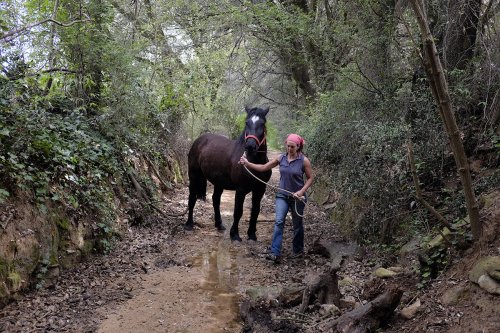
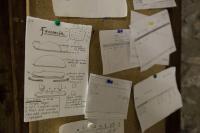






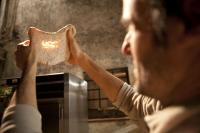



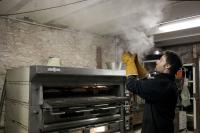


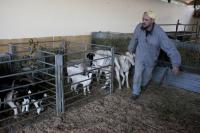

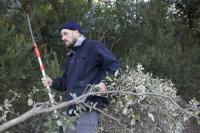














As the western economic and social paradigm falls apart, many people are seeking new sustainable economic formulas. Climate change, depletion of natural resources, environmental pollution, overpopulation and hunger are putting humanity on the edge of collapse. It’s tough times. The economy has been in recession for the last 6 years and the younger generations are the most effected by unemployment and lack of opportunity. But, something is stirring in the countryside as a new generation in their late twenties/mid thirties are looking the recession in the eye. They are being creative, forming cooperatives, looking into the past for examples of sustainable living that had been all but lost on the road to “modernity”. They are rescuing human values and beliefs in a social economy, questioning what was taken for granted and what led us to where we are today. These are people with firm values who are trying to create a new social economy. One which takes into account personal health and the environment and that benefits not just themselves, but also their immediate community. Stepping Back, Moving Forward is an long-term project documenting this quiet, slow revolution being made by thousands of activists around the world and which is steadily gaining more followers.
The Baker
It’s a chilly October night in Valls, a small town in the Catalan region of Tarragona. Pere who everybody knows as Pipirimosca is carrying his last sack of spelt, an old type of wheat he uses to bake his bread, into the bakery. In about 7 hours he will have baked over 60 loafs of smoking fresh organic spelt bread. Spelt is a cereal that has mostly been unused for the last 50 years, exchanged for a more productive variety which gives more grains per ear but also is worse for celiacs. Pipirimosca bakes his bread twice a week at his old family rural house. He also lives there and hosts woofers (Working on an Organic Farm - an international organic agricultural volunteering network) for a certain period of time in exchange for work in the bakery and on his permaculture plantation. Like most organic producers in the area, he belongs to a local organic produce organization called “Gent del Camp” (Countryside People) Gent del Camp helps promote products and also offers consultancy aswell as seed banking for it’s affiliates.
The Shepherd
Looking down the hill you can see Sant Boi del Llobregat, part of the Barcelona Metropolitan Area. The jingle of bells lead us to Edu Balsells, a former social worker who has been tending goats for the last 5 years. He began as an apprentice with older shepherds, learning the dying trade. He squats an old village house along with with his girlfriend in Querol, 150 km from Sant Boi. For the past year, he has been renting a room from an old couple in Sant Boi, ever since the town hired him and his goats to clean the surrounding forest undergrowth as summer fire prevention. The goats do an effective job and are environmental "friendly" . Low CO2 emissions combined with traditional grazing gets preserved, it’s an all win situation. His goats then provide organic meat, as no antibiotics are used to keep the them healthy.
El autor mantiene los derechos sobre su obra.
Contactar el autor aquí
Visitar su página web: www.enriccatala.com



